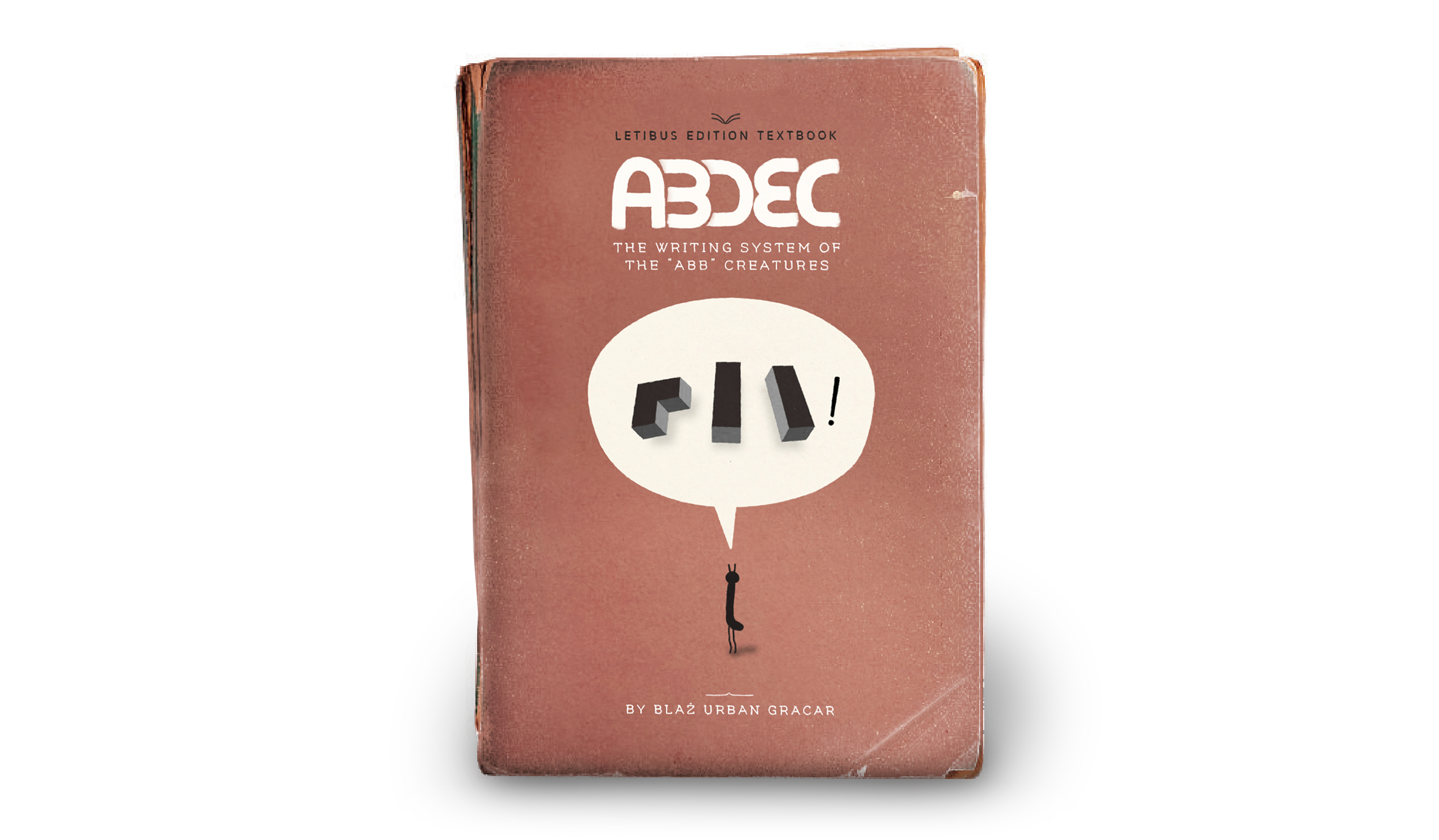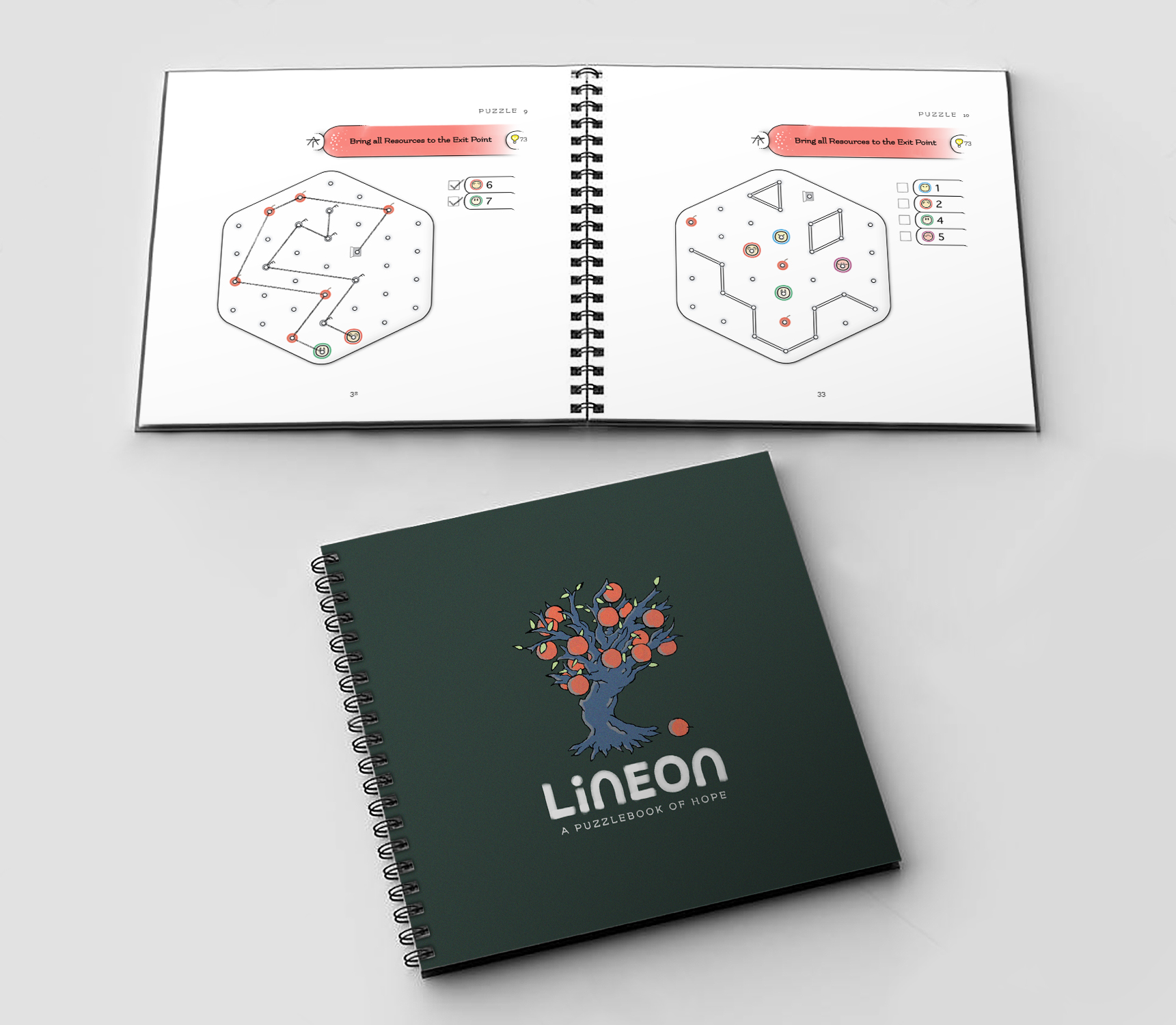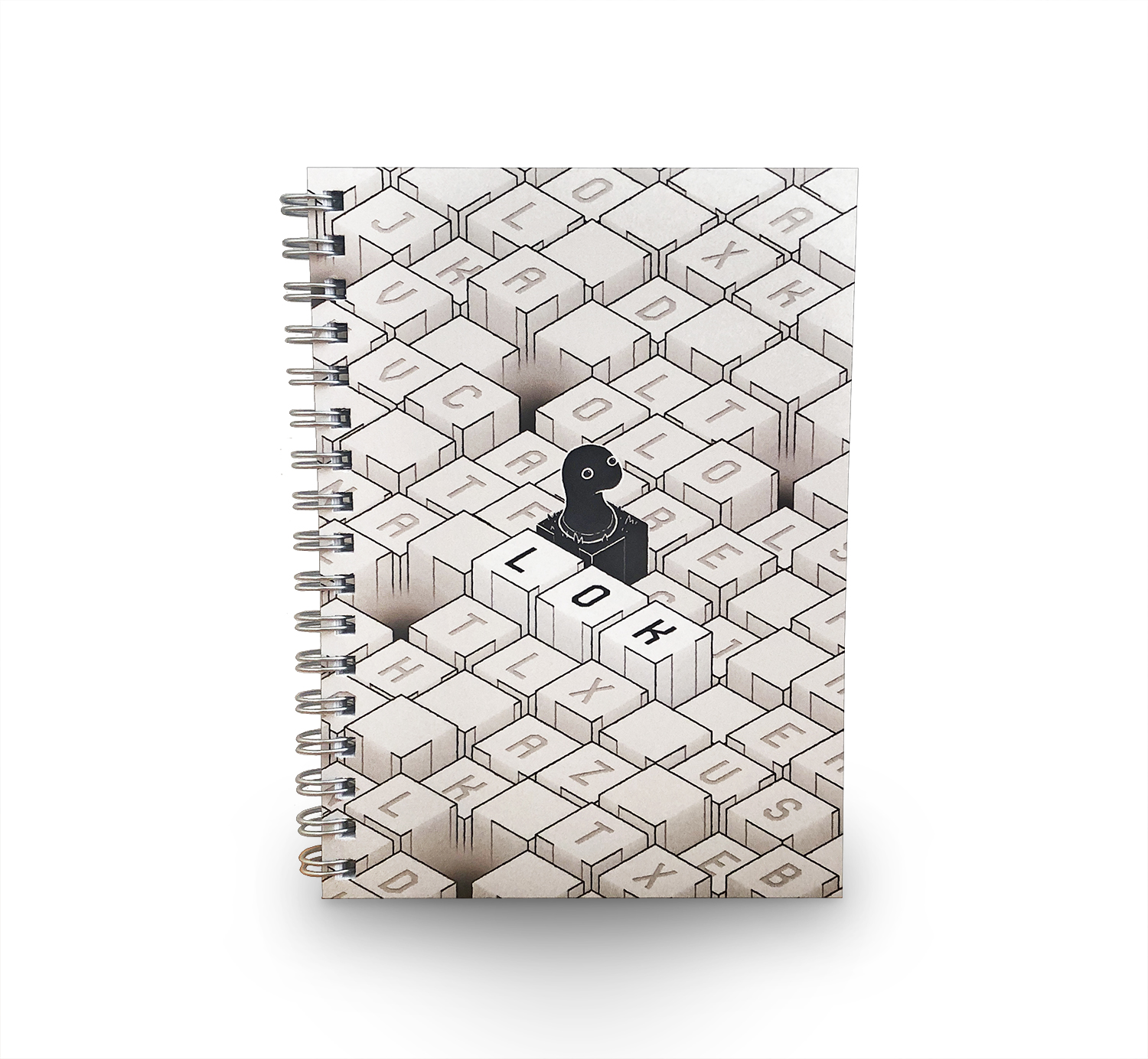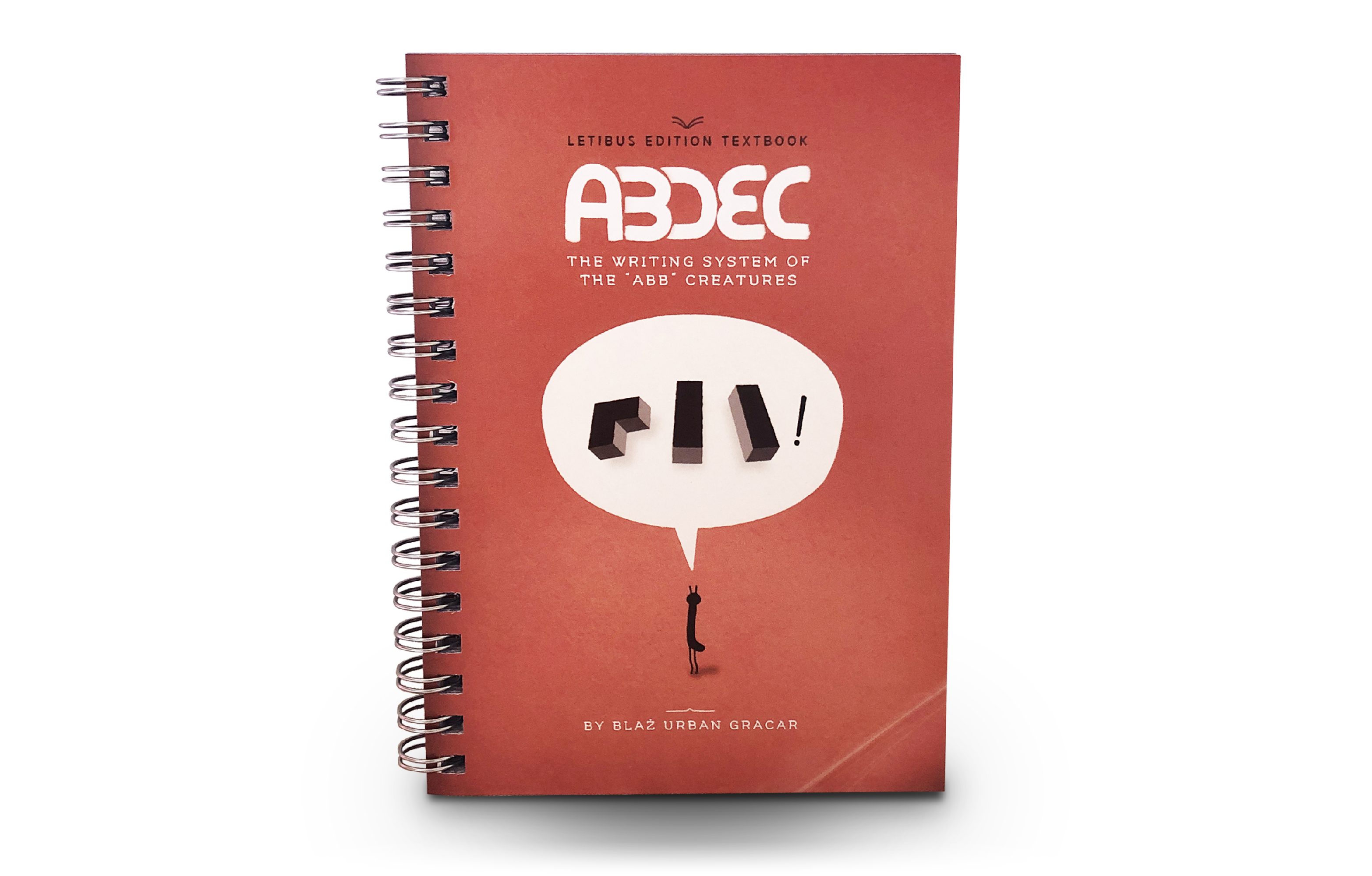Design Diary 1: It Started With A Line
This is part 1 of design diaries about Abdec's development. Check out the whole series here.

As I'm preparing to physically release my latest puzzle book Abdec – which was already digitally released as a PDF a few months ago – I decided to share how Abdec came to be through designer diaries. Not sure how many of them I will write, hopefully this one isn't the last one, but I feel like I stumbled upon some useful information while creating Abdec – and while creating all the previous puzzle books as well.
This is why I want to start with my first puzzle book Lineon I made back in 2020. A lot of things I had to realise and implement while developing Lineon carried on into the development of my second book LOK and then Abdec.
My game design goal has never changed: I want to create interactive experiences that are on par with my favourite video games in scope and quality, while still remaining physical, small, cozy, detached from devices and noise. My favourite video games at that time were Seiklus, Cuphead, Celeste, Hyper Light Drifter; I adore elegant systems, interesting movements and weird, fantastic atmospheres.
Of course, when I first tried to make a tabletop game that feels like such a game, I relied on classic tabletop components: dice, boards, cards, figurines. Which always resulted in a pleasant, but safe and slow gameplay. No prototype clicked for me - until March 2020, when I absent-mindedly sketched a grid of dots on paper and connected two points with a line. Right away, something felt right – it felt like interesting movement, but in a physical space. And it was achieved with just a pen and a paper – it was elegant.

This image is only a mockup
Pen and paper couldn't withstand randomness on their own without introducing other standard tabletop components, so the system had to be precise and guided, like a Sudoku book, but with a story, flare, magic. Lineon had to be a puzzle book. Honestly, I wasn't deeply into puzzle games until I had to do one, but right after starting Lineon, I got into the classics, which are now some of my most cherished game experiences: Stephen's Sausage Roll, Linelith, The Witness. Not only that, I started participating in various online puzzle communities, which has been a blast to this day. Puzzles really are such a beautiful artform.
I never finished Lineon. It remains a work-in-progress on my Itch.io site, calling for my attention, abandoned for more than a year now. Its fatal flaws were two: firstly, its scope. Lineon would be my biggest puzzle book to date if it would be finished and it was simply to much for me too chew on as a beginner. And secondly, it had a rulebook.
Lineon had only around 10 pages of rules and it was still too many. People had to actively read blocks of text to understand what they had to do. If I wanted to stay true to my goal of offering a modern game experience, my games had to be as responsive as video games.

This is how LOK came to be. I was still mourning Lineon's arrested development, but I was already itching for something new: I wanted to create something small, to keep my mind busy. It was a quick flash of inspiration – I combined a simple word-search puzzle system I made a while ago with instructionless approach of Jonathan Blow's video-game The Witness. I finished it fairly quickly, in about 6 months, and released it. Meant as a side project, it has been my most successful game so far. The whole LOK thing still feels magical: friendly comments, reviews, I read them all, I'm happy and grateful. It's been a good year.
I think I achieved something important with LOK – I removed the rules from a physical game and the game survived. Or rather: I made the rules part of the gameplay. It seems silly and basic, but in reality, such approach demands for very a precise and personal design, because in the end, the only thing keeping the game together is a mutual trust that I will communicate my thoughts sufficiently enough through meaningful and playful patterns. LOK was gentle, otherwise this trust would break and it would feel like learning a completely new language from a newspaper. Step by step, I needed to assure the player we are on the same page. This, I think, is the biggest lesson that LOK represents.
Abdec, on the other hand, already started a lot more ruthless, taking LOK's instructionless system and feeding it with stereoids. I wanted to explore the edges of what abandoning rules really meant for a puzzle book.
But more on Abdec's development (probably) in the next design diary. If you wish to learn when physical Abdec will be available, subscribe to our newsletter. The physical version will be a major update of what is currently available in the PDF form in terms of puzzles, aesthetics, secrets. Also, join our Letibus Discord channel, if you haven't yet!
Until then, have fun!
Get Abdec
Abdec
The writing system of the "Abb" creatures
| Status | Released |
| Category | Physical game |
| Author | Letibus Design |
| Genre | Puzzle |
| Tags | Abstract, Art Book, Board Game, Hand-drawn, mind-bending, Mystery, Print & Play, zine |
| Languages | English |
| Accessibility | Color-blind friendly, High-contrast, Textless |
More posts
- Minor Update: Solutions (Re)AddedAug 13, 2023
- Major Update: Physical Abdec Available!Aug 04, 2023
- Design Diary 3: Burning The PagesJul 18, 2023
- Design Diary 2: Creating The PDFJul 11, 2023

Leave a comment
Log in with itch.io to leave a comment.